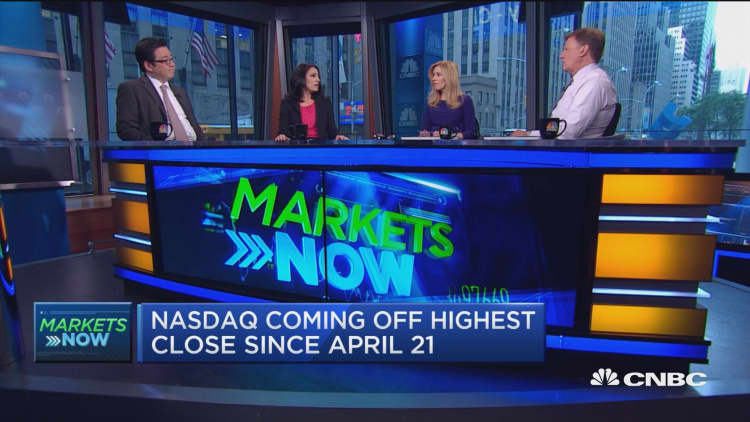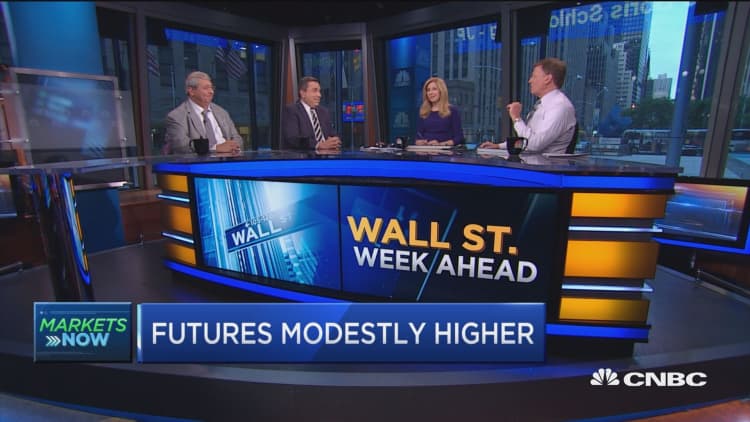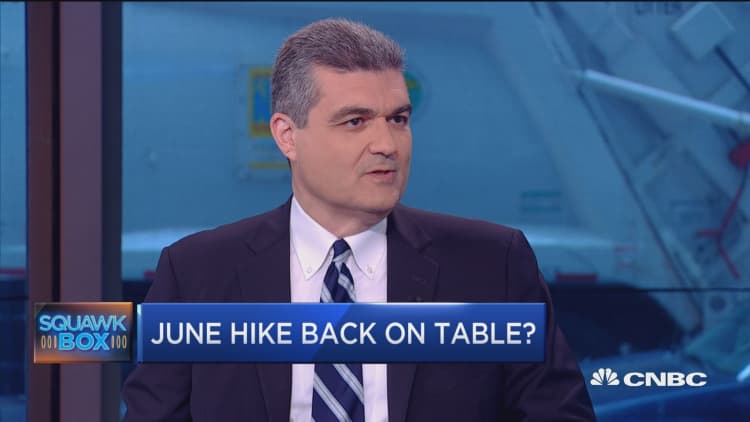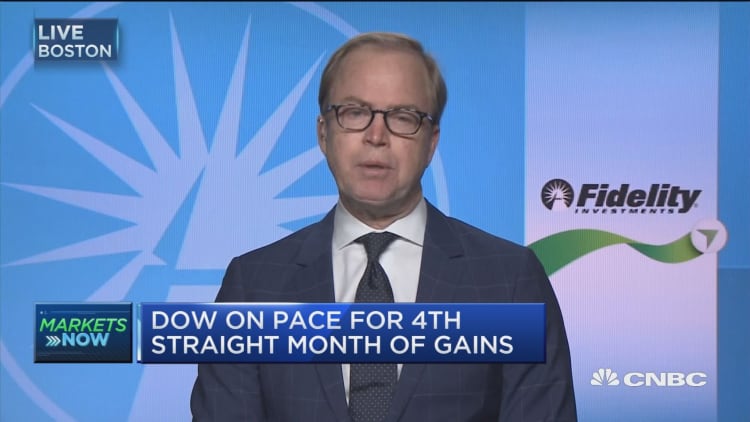



Investors considering dumping their stock portfolio should think otherwise as U.S. equities are poised for big returns this year, even with a summer rate hike on the table, often bullish strategist Tom Lee said Tuesday.
"We've got inflation picking up; which is good, we've got commodities bottoming. The dollar isn't gaining anymore. High yield probably is the most important thing to focus on; it's telling us that the stock market should have double-digit gains this year," the founder of Fundstrat Global Advisors told CNBC's "Squawk Box."
The high-yield bond market is up more than 8 percent year to date after a dismal 2015, while the benchmark was up 2.7 percent entering Tuesday's session.
Since 1985, the stock market has posted double-digit returns 14 of 15 times when high-yield bonds have posted returns of more than 10 percent, Lee said.
He also said the stock market would be ready for an interest rate increase by the Federal Reserve, given "the market has priced in a lot more tightening already."
Market expectations for a Fed hike in June were at 28 percent Tuesday, and at 61 percent for July, according to the CME Group's FedWatch tool.
Steve Ricchiuto, chief U.S. economist at Mizuho Securities, said Tuesday there is a very good chance the central bank will pull the trigger in June for its first hike of the year.
"They've laid the groundwork; they seem to want to do it. I'm not an advocate that they should be doing it, but they seem to want to do it," he said on "Squawk Box."
Still, "monetary policy, at this stage in the economy, should not be leading the economy. They should be following the economy and moving along with it; they're well ahead of it, and that's the problem markets get into every time they do something," Ricchiuto said.




